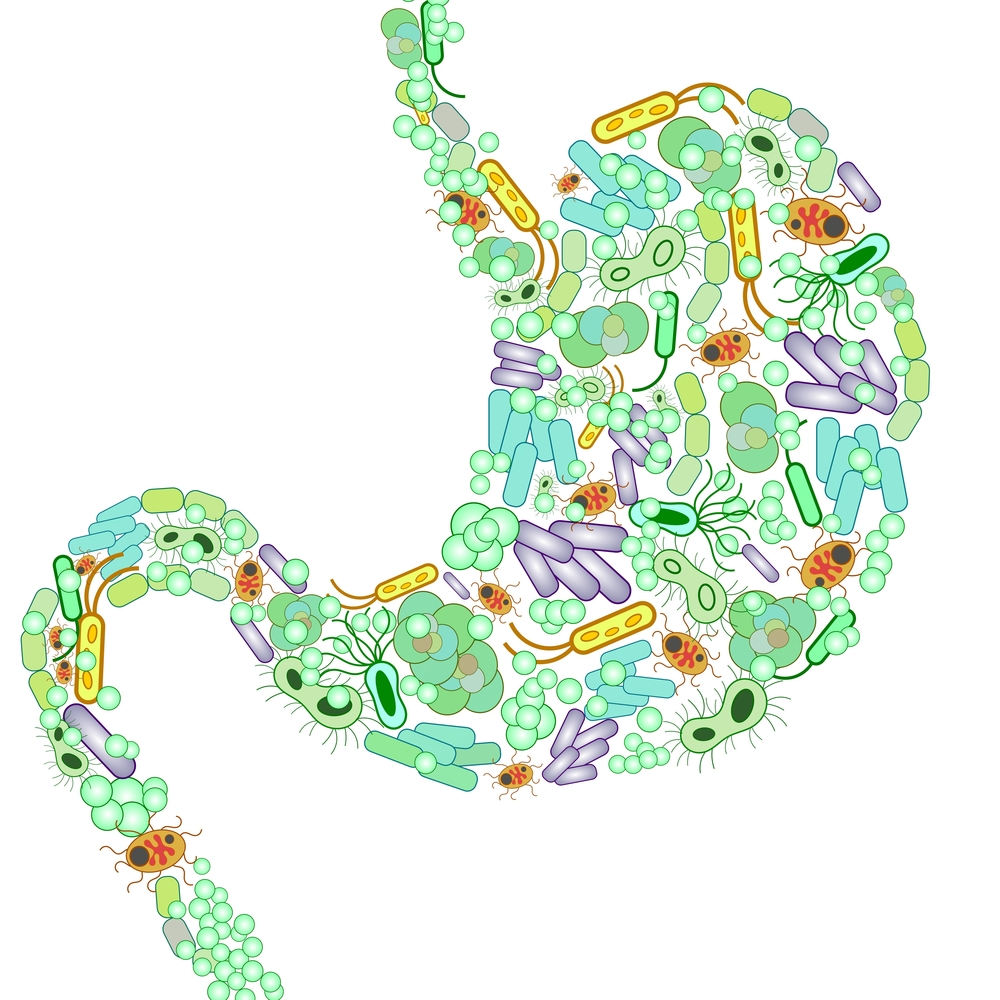HEALTH TOPICS
Gut Health and Cancer: The Microbiome’s Role in Health
Posted by: Quieta Bail Naturopath (BHSc)
In recent years, research has started to focus on how gut health may be linked to several diseases and pathologies. Oncology (cancer) research has found that there is compelling evidence linking the gut microbiome and the development of some forms of cancers. Although it is quite well known that the microbiome of the gut influences our immune system (and vice versa), understanding the link between this and cancer is quite complex. This is just more ground-breaking research that shows how creating a healthy microbiome can help to improve health.
The Gut Microbiome 
The gut microbiome refers to the entire ecosystem of microbes that live within your digestive tract. This includes everything from bacteria and viruses to fungi and yeast, which make up around 100 trillion different micro-organisms! Your microbiome starts to form in utero, and from birth it continues to increase in diversity until adult-like microbiome around 3-5 years of age.
Each person’s microbiome is as unique to them as their fingerprint, with many influences and factors to what can make one’s microbiome a ‘healthy’ one. Nonetheless, there are known factors which can cause the microbiome to become imbalanced, such as antibiotics and other medications, poor diet, stress, and disease.
The Microbiome and Health
The gut microbiome is known to have a key role in the regulation of our health. To maintain a robust immune system, we require a healthy balance between the ‘good’ bacteria and the ‘bad’ bacteria – yes, sometimes we need both. If this balance is disrupted, also known as dysbiosis, it can cause an immune reaction which triggers inflammation. This inflammatory response can lead to disease. Actually, low microbiome diversity has been linked to conditions such as obesity, cardiovascular disease, autoimmune disease and neurological disorders.
The microbiome influences local immune responses and has effects on innate and adaptive immunity through modulative and regulative actions. When in dysbiosis, the local and systemic immune responses can become impaired which can cause barrier breakdown, increased inflammation locally and systemically, and an increase of bad bacteria.
The Microbiome and Cancer
The gut microbiome and their metabolites induce immune and cellular pathways to help reduce or eliminate pathogens and trigger immune responses to prevent cancer. The microbiome can even affect how effective chemotherapy drugs are when undergoing cancer treatment. The microbiome plays a key role in the protection against cancer through improving gut integrity, Nonetheless, dysbiosis can occur. Dysbiosis and the presence of pathogenic bacteria/viruses may lead to the development of tumours and is associated with approximately 20% of all cancers!
Studies have found that alterations in the gut microbiome can cause predisposition to cancer through multiple pathways. Some bacteria and their by-products aid in cancer development, due to dysbiosis which causes commensal bacteria to invade the gut lining and cause inflammation. This inflammation can be a driver in the development of tumours.
One example is Helicobacter pylori (H. pylori), which when in the gut can stimulate the immune system into chronic inflammation which can lead to gastric cancer. How does this happen? This bacterium has genes which dysregulate normal cells and tissues, causing cytokines (inflammation molecules) and other cancer-causing signalling molecules to accumulate. This can ultimately lead to gastric cancer and has also been linked to oesophageal cancer. This can occur with different strains of bacteria along the digestive tract which can affect different organs.
How to Improve the Microbiome
This isn’t meant to alarm you though, but it does go to show just how important our gut health and microbiome can be! Luckily, there are many things you can do to gain and maintain a healthy microbiome.
Diet:
Diet plays a huge role in the health of the microbiome, as what you eat is what they eat, too! If the goal is to have a diverse microbiome, then you need to be consuming a diverse range of fruits, vegetables, and other foods high in prebiotic fibre. Prebiotic fibre feeds microbes and helps to support the good bacteria in the gut and keep a healthy balance. Consuming probiotic foods, such as yoghurt, sauerkraut, kefir and kimchi can also improve microbiome health as these contain beneficial bacteria. Removing highly processed and fatty foods, alcohol and refined sugars is also recommended.
Probiotics:
Taking probiotic supplements can help to support a healthy balance. Considering there are many different types available, all with different effects on the microbiome, it is important to speak to a health professional who will be able to assist in finding the right strain for you.
Lifestyle:
Stress has a huge negative impact on the microbiome and gut health in general. Practicing lifestyle techniques such as exercise, meditation and having good sleep is as good for you as it is for your microbiome.
Speaking to a naturopath can help to determine if there is underlying dysbiosis, and they can even order GI Testing which can map out your microbiome. If this is something you would be interested in, give us a call on (07) 5532 2069 or book now https://gr8health.com.au/wellness-method/booking-form.
References:
https://www.nature.com/articles/s41416-021-01467-x#Sec1
https://www.cancer.net/blog/2020-12/your-microbiome-and-cancer-what-know
https://www.ncbi.nlm.nih.gov/pmc/articles/PMC4121395/
https://www.ncbi.nlm.nih.gov/pmc/articles/PMC4690201/
https://www.sciencedaily.com/releases/2022/02/220228114419.htm
https://www.sciencedaily.com/releases/2022/02/220228114419.htm
Subscribe to Gr8Health
Sign up to get 5% off your first order, exclusive access to our special offers, new arrivals and more.
